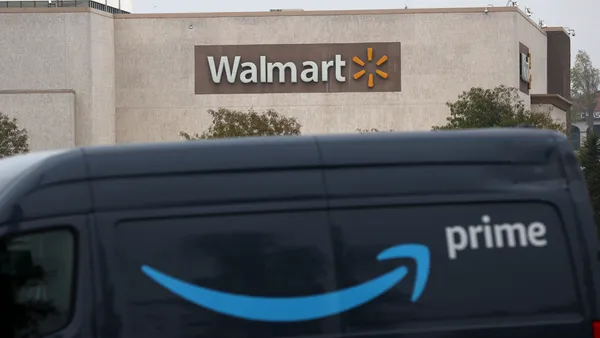Dive Brief:
- A new report from brand data analytics and logistics firm Semantics3 forecasts significant consumer price increases from major brands including Ugg, Calvin Klein and Ralph Lauren where consumers could expect to pay as much as $25 more on average depending on the products they purchase.
- The report notes companies will face significantly higher price increases (between $20 and $100) on items sourced from China, suggesting they will likely pursue significant cost mitigation efforts such as renegotiating vendor contracts or digging into their margins to keep consumer prices as flat as possible.
- The uncertain nature and longevity of the tariffs poses a significant risk to the business models of brands with less financial flexibility, Govind Chandrasekhar, co-founder and data science lead at Semantics3, told Supply Chain Dive.
Dive Insight:
Nearly 41% of all U.S. apparel is manufactured in China. As a result, apparel brands that were safe from the Trump administration's tariff increases now find themselves highly exposed to the proposed tranche four tariffs of up to 25% on $300 billion worth of Chinese imports, including apparel, leather and textiles.
In its report, Semantics3 analyzed one million U.S. apparel products sold online from shoes and socks to pants and outerwear. Based on data analysis of the "made-in" labels on various items, the company calculated a brand's overall exposure to Chinese import price increases.
Unsurprisingly, brands like Calvin Klein, Forever 21, Guess, Nike and others face significant cost increases as much of their products are sourced and manufactured in China. The end price consumers would pay varies from company to company based on the overall product mix and costs companies decide to pass down the chain.
The administration's recent tariff-by-tweet trend has companies of all sizes scrambling to reconfigure their supply chains. However, "smaller companies seem to react faster because they don't have the financial resources to sustain market uncertainty, while larger brands have larger supply chains to maneuver," Chandrasekhar said.
While smaller enterprises are theoretically more nimble, they either have to pass costs directly to customers and risk losing them, or take another risk and shift their business models entirely. The resource-intensive process of ensuring large inventory categories are in compliance with shifting trade regulations while maintaining sustainable profit margins could prove unsustainable in the long run.
On the flip side, larger legacy brands have the margins to wait things out, but only for so long, and when they eventually do need to shift their supply chains, it is a far more painful task.
Semantics3's analysis concluded before President Trump's recent tweet announcing a 5% tariff on all goods imported from Mexico, which could go into effect as soon as Monday, June 10. This will have a significant impact on the apparel sector as Mexico is the U.S.' eighth largest apparel supplier and the number one source of denim for men's jeans.














